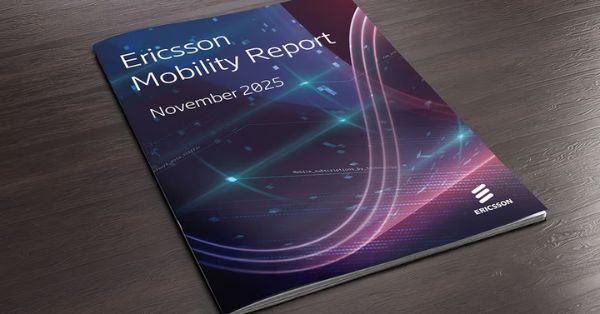Vodafone and Google Partner to Enhance User Experience for Sharing and Streaming Content
Vodafone and Google have partnered to deliver enhanced network capabilities for Google Pixel users, focusing on improving upload speeds and connectivity for user-generated content. As customer habits evolve, with uploads of high-quality video content and live-streaming becoming increasingly popular, this collaboration introduces innovations to meet these demands.
By leveraging Vodafone UK’s 5G Ultra network and cutting-edge technologies such as MIMO (Multiple Input, Multiple Output) and Uplink Carrier Aggregation (ULCA), the partnership aims to provide seamless sharing experiences for users, especially those utilizing Google’s latest Pixel devices.
Improved Upload Speeds for User-Generated Content
The partnership focuses on optimizing upload performance to cater to the rising trend of user-generated content, such as 4K video uploads and live-streaming. Vodafone has enhanced its 5G Ultra network with the following key innovations:
- MIMO Technology: Introduced for the Google Pixel 8 Pro, MIMO doubles the number of antennas communicating with the device, significantly boosting upload speeds and connection reliability.
- Enhanced Uplink Carrier Aggregation (ULCA): Vodafone has activated additional ULCA combinations for Google Pixel 9 series devices, enabling faster uploads and improved download speeds. Users can now benefit from the aggregation of up to four spectrum frequency bands for superior connectivity.
These advancements allow customers to share movie-quality videos or live-stream events seamlessly, enhancing the overall mobile experience.
Why User-Generated Content Matters
Over recent years, the volume of data uploaded by customers has surged due to the popularity of platforms that enable sharing photos, videos, and live experiences. Traditionally, networks prioritized download speeds, but the growing need for robust upload capabilities has shifted this focus.
Andrea Dona, Chief Network Officer at Vodafone UK, emphasized, “Customer behavior is changing as more aspects of our lives become digital. The balance between downloading and uploading data is shifting, and our network must adapt to meet this trend.”
The shift is further fueled by immersive applications and new technologies such as AI, which demand reliable, high-speed uploads.
How Vodafone and Google Optimized Connectivity
The enhanced upload speeds and reliability are a result of key technological advancements:
- MIMO Technology: MIMO uses multiple antennas at both the network mast and user device to improve data speed, minimize errors, and increase connectivity capacity. By employing MIMO, Vodafone has doubled the number of data streams available to Google Pixel 8 Pro and Pixel 9 series devices.
- Carrier Aggregation: This technique assigns multiple spectrum frequencies to the same task, increasing data rates. Vodafone’s network upgrades now allow Google Pixel devices to connect to four spectrum blocks, improving both upload and download performance.
These technologies not only improve user experience but also set the stage for supporting more immersive and interactive applications in the future.
Enhanced Performance for Google Pixel Devices
The partnership introduces significant improvements for the following devices:
- Google Pixel 8 Pro: Benefits from faster uploads and enhanced download speeds using MIMO and ULCA technologies.
- Google Pixel 9, 9 Pro, 9 Pro XL, and 9 Fold: Equipped with additional ULCA combinations for simultaneous performance enhancements in both uploads and downloads.
These upgrades ensure that users can share and stream high-quality content more efficiently than ever before.
Supporting Large-Scale Events and Changing Usage Patterns
Vodafone’s network enhancements were put to the test during major events like Glastonbury Festival and the Badminton Horse Trials, which attracted hundreds of thousands of attendees. These events highlighted the growing importance of robust upload capabilities, as attendees increasingly shared their experiences live.
Generally, upload data accounts for 10–15% of total network traffic, but at events, this figure often surges, demonstrating the need for networks to handle increased upload demand effectively.
Michiel van Eldik, VP of Devices & Services Partnerships at Google EMEA, stated, “We want our customers to share their experiences seamlessly and in the highest quality possible. Our partnership with Vodafone ensures that sharing 4K videos or live-streaming a concert is smoother than ever.”
Looking Ahead: The Role of 5G Ultra and Beyond
Vodafone’s 5G Ultra network, its 5G Standalone service in the UK, represents the next evolution of mobile connectivity. With ultra-low latency and high bandwidth, the network is optimized for immersive applications like AR/VR, live-streaming, and advanced content sharing.
Future enhancements will continue to prioritize the needs of users sharing content and running data-intensive applications. Vodafone also plans to extend these capabilities to more devices, ensuring broader access to these network advancements.
The partnership between Vodafone and Google demonstrates a commitment to enhancing the mobile experience for users in an era of growing content creation and sharing. By leveraging advanced technologies such as MIMO and ULCA on the 5G Ultra network, this collaboration addresses the evolving needs of customers who demand faster, more reliable uploads. As user-generated content continues to drive connectivity demands, Vodafone and Google are leading the charge in ensuring their networks and devices are equipped to handle the future of digital interaction.







































